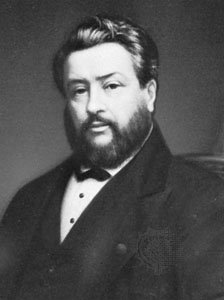-Jon Irenicus
Some of the free-willers that I had conversation with consider the [Calvinistic] doctrine of Total Depravity as Zombie-ism (a term they use to make fun of the doctrine because it seems to deny free will).
The truth is, Zombie-ism is a fact according to the Scriptures!
Some of the free-willers that I had conversation with consider the [Calvinistic] doctrine of Total Depravity as Zombie-ism (a term they use to make fun of the doctrine because it seems to deny free will).
The truth is, Zombie-ism is a fact according to the Scriptures!
- Man's heart is evil (Mark 7:21-23)
- Man's heart is sick (Jer. 17:9).
- Man is a slave/zombie of sin (Rom. 6:20).
- Man does not seek for God (Rom. 3:10-12).
- Man cannot understand spiritual things (1 Cor. 2:14).
- Man is at enmity with God (Eph. 2:15).
- Man is is by nature a child of wrath (Eph. 2:3).
Calvinism does not make a zombie out of a man, rather it exposes it. It is the concept of obedience that follow faith not reason that makes a zombie out of a man. Does Zombie-ism deny the FREE WILL of man? I don't think so.
Regarding Free will, the Westminster Confession of Faith rightly explains,
In my previous article about Unconditional Election (Is God's election Unconditional?), I have already stated how I understand Free Will:
Man's freedom of will, therefore, is limited within certain boundaries:
Regarding Free will, the Westminster Confession of Faith rightly explains,
[9.1] God hath endued the will of man with that natural liberty, that it is neither forced, nor, by any absolute necessity of nature, determined to good, or evil.
[9.2] Man, in his state of innocency, had freedom, and power to will and to do that which was good and well pleasing to God; but yet, mutably, so that he might fall from it.
[9.3] Man, by his fall into a state of sin, hath wholly lost all ability of will to any spiritual good accompanying salvation: so as, a natural man, being altogether averse from that good, and dead in sin, is not able, by his own strength, to convert himself, or to prepare himself thereunto. [Westminster Confession of Faith, Article 9]
In my previous article about Unconditional Election (Is God's election Unconditional?), I have already stated how I understand Free Will:
I insist, on the other hand, that Unconditional Election is not inconsistent with free will, that is, as I understand the term. I deny, however, that humans have free will in the Arminian sense. What Calvinists emphasize is that sin has removed, if not freedom, at least the ability to exercise that freedom properly. Loraine Boettner, for example, compares fallen humanity to a bird with a broken wing. The bird is "free" to fly, but is unable to do so. Likewise, "the natural man is free to come to God but not able...."
Man's freedom of will, therefore, is limited within certain boundaries:
- Man's free will is limited within the boundary of God's sovereign decree. It can neither go beyond nor contradict what God has already planned. (click here for a more extensive study).
- It is limited within the boundary of man's nature. For example, you can choose to fly like superman, but your human capabilities will not let you do so. In application, a sinner has freedom of will, but inclined only to do the evil desires of his sinful nature.
____________





